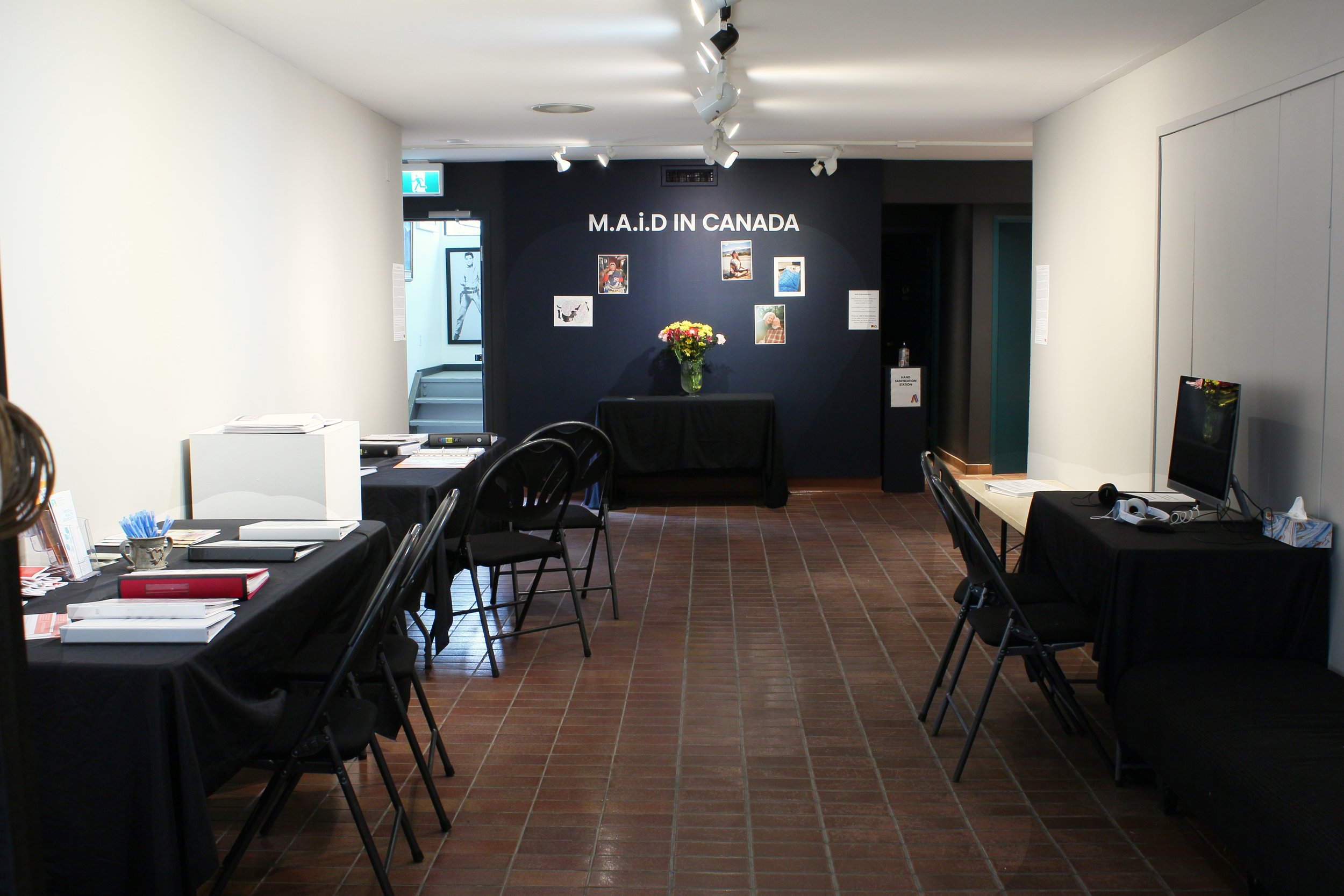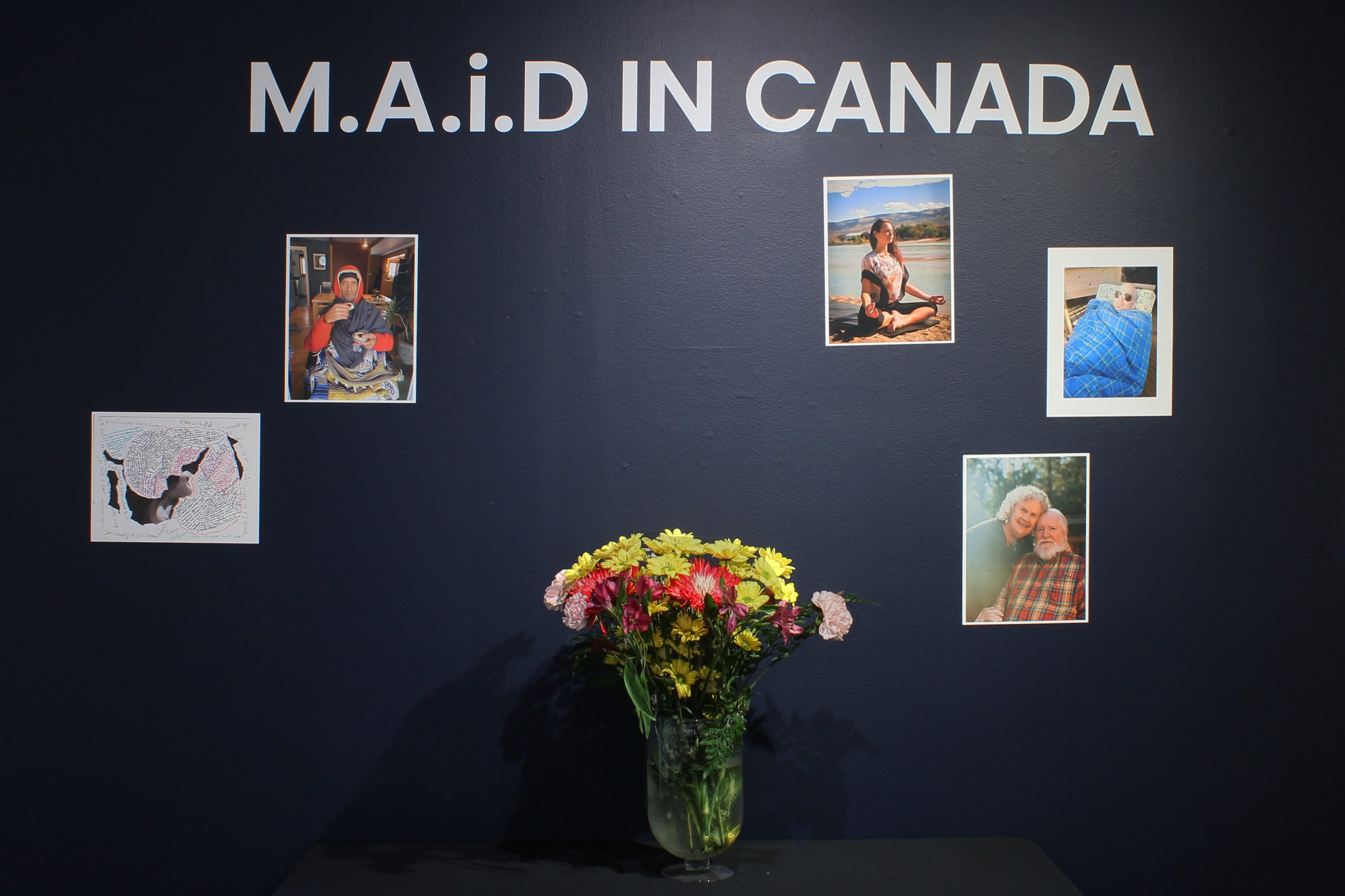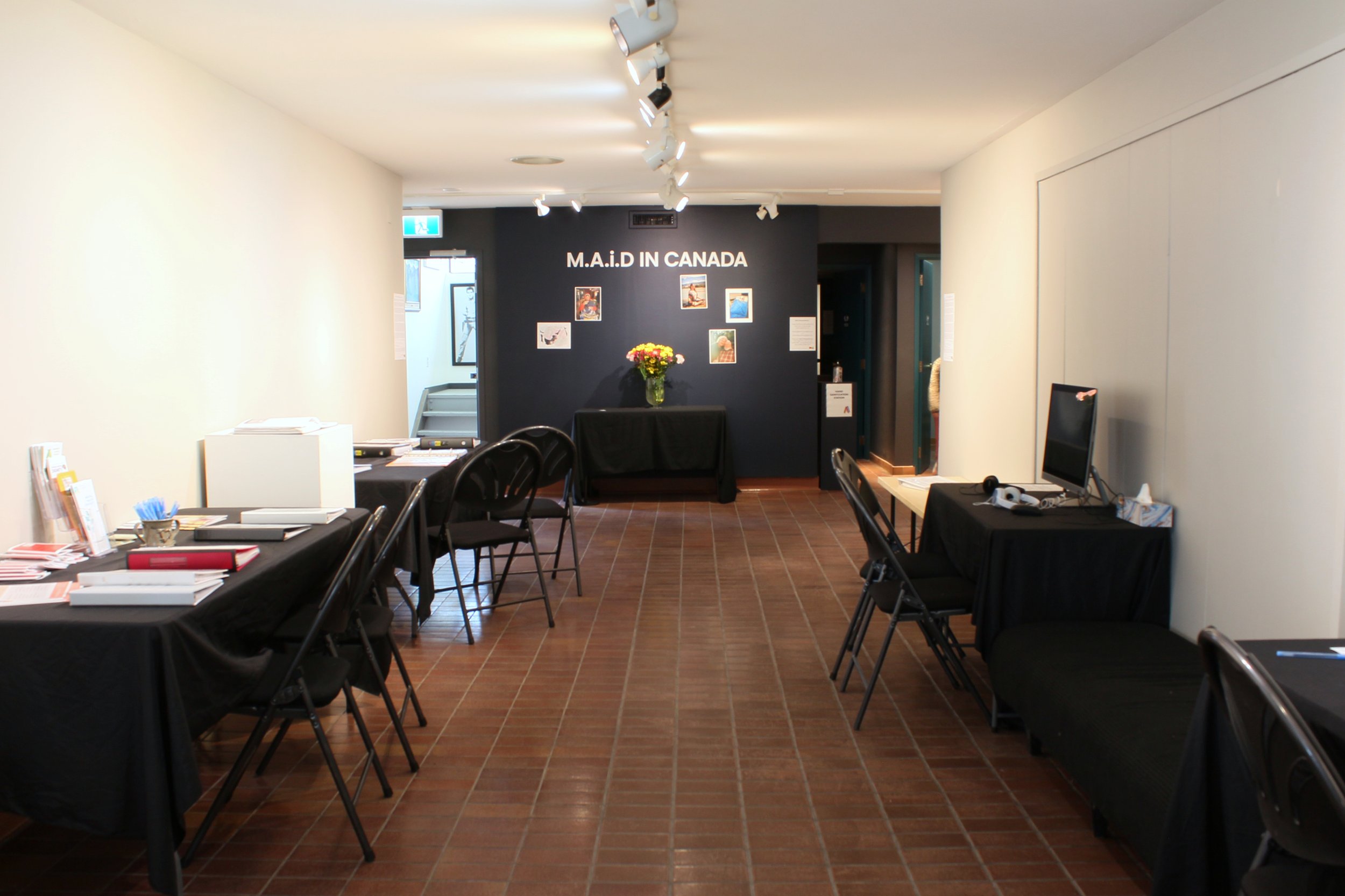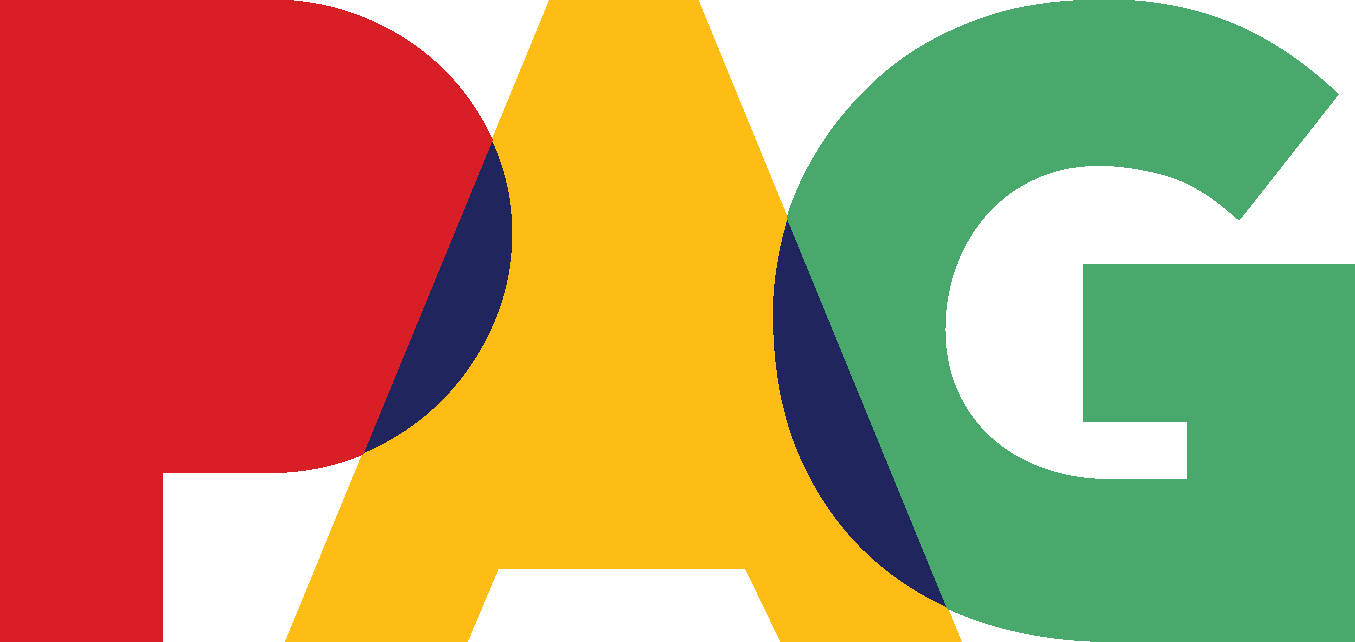MAID in Canada
march 23rd, 2024, TO MAy 11th, 2024
toni onley GALLERY



The Penticton Art Gallery is seeking the public’s input on Canada’s Medical Assistance in Dying (MAID) Program in the form of a handwritten, typewritten letter or email to be displayed in the gallery from March 23 – May 11, 2024, as part of our MAID in Canada exhibition.
The intent of this exhibition is to provide the community with a safe space to reflect, talk and explore the impacts and the implications of Canada’s Medical Assistance in Dying (MAID) Program. If it hasn’t impacted your life already it’s only a matter of time before you or someone you know will be directly impacted by it.
Since coming into law in 2016 over 50,000 Canadians have received medically assisted deaths. In 2022, the total number of MAID provisions increased by 31.2% (2022 over 2021) compared to 32.6% (2021 over 2020) and the annual growth rate in MAID provisions has been steady over the past six years, with an average growth rate of 31.1% from 2019 to 2022.
Our aim is to create a forum for dialogue by putting a human face on the overarching impact of the MAID program, providing a personal context that highlights individual experiences and perspectives. Whether you’re currently considering MAID or have had a loved one contemplate or undergo the program, your individual perspective is a valuable tool in helping us collectively process and come to terms with the impact this has and will have on our society. Recognizing the deeply personal nature of Canada’s medical assistance in dying (MAID) program, we believe your unique perspective will help shed light on the impact of this social policy and help us foster a more informed and compassionate dialogue. Through this collective sharing, our exhibition aims to contribute to a more compassionate, empathetic, and caring society.
There are no right or wrong answers and there is no agenda advocating either for or against this complicated and highly emotionally charged aspect of our society including our legal and health care system. In doing so I also realize that each of us brings our unique perspectives which have been shaped by our individual experiences and beliefs and these perspectives are subject to evolution and possibly change as the circumstances of our lives unfold. This exhibition is a direct response to my own lived experiences over the past few years, during which I’ve known at least a dozen individuals who have chosen MAID. For those who were confronting a terminal illness and enduring excruciating suffering, MAID may appear to have been the most compassionate option. However, for others—especially those for whom natural death wasn’t imminent—coming to terms with the implications of MAID has left many unanswered questions. Setting aside any questions of morality, it’s undeniable that MAID presents a challenging subject, fraught with genuine risks and uncertainties both in its current implementation and in any potential expansions in the future.
When I first considered this as an exhibition, the eligibility for Medical Assistance in Dying (MAID) for individuals solely suffering from mental illness was set to come into effect on March 17, 2024. This controversial expansion raised significant concerns with over 50 disability organizations opposing it in a joint letter to the justice minister in December 2022. They expressed concerns about the interconnected relationships among increasing socioeconomic disparity, social isolation, inadequate affordable housing, and food insecurity which have all contributed to a mounting climate of anxiety and rising addiction rates, exacerbating our growing mental health crisis. In 2023, the heads of psychiatry at all of Canada’s 17 medical schools called for a further delay, arguing that determining the irreversibility of mental illness is an impossible task and raises genuine concerns about the potential tragic consequences of expanding the MAID program.
The advocacy efforts of this coalition are directed towards ensuring accessibility to affordable housing, food security, mental health treatment, and addiction support to protect the most vulnerable in our society. Responding to these concerns, the Government of Canada introduced legislation in late January seeking to further extend the temporary exclusion of those suffering solely from mental illnesses until March 17, 2027.
As mentioned above this exhibition has been driven by my own lived experiences my observations, conversations I have had with other who have gone through this and/or are considering this as an option and all the questions, I have been left with to process as a result. The public’s participation is crucial in helping us shape a more informed and compassionate dialogue surrounding the impact of the MAID program will have not only on our lives but our society in general. Irrespective of your stance on this issue, we deeply acknowledge that your unique experiences and insights hold immense value in enriching our collective understanding of this complex matter and we are inviting to the public to lend their voice and contribute to this crucial conversation through the medium of a personal letter. Each letter holds the potential to contribute significantly to the depth and diversity of our collective understanding.
There are three ways you can contribute to this conversation and contributions will be accepted through the course of the exhibition.
1) In person: Penticton Art Gallery, 199 Marina Way, Penticton, BC, V2A 1H5
2) Mail to: MAID in Canada, C/O Penticton Art Gallery, 199 Marina Way, Penticton, BC, V2A 1H5
3) By email: curator@pentictonartgallery.com
* Note: Please include the following in the subject line: MAID in Canada Submission
Each letter submitted will be handled with the utmost respect and reverence, providing visitors with a unique opportunity to engage, reflect, and respond at their discretion. While you are most welcome to put your name to your letter we also respect and understanding the sensitivity inherent in this topic, we prioritize creating a safe and comfortable space for everyone to express themselves fully and your letter can be submitted anonymously, providing the assurance that everyone is welcome to share their thoughts and reflections freely without needing to reveal their identity. Your voice is pivotal in shaping a more informed and compassionate dialogue surrounding this crucial issue. Thank you again for your consideration, compassion, and trust.


